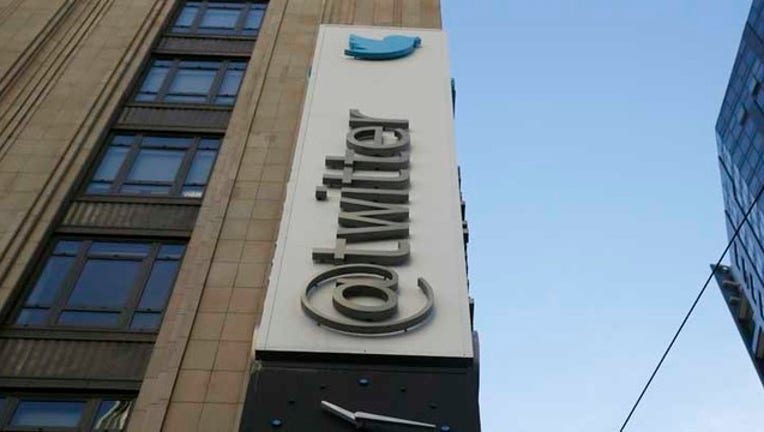Fake story on buyout sends Twitter stock briefly higher

NEW YORK (AP) -- Twitter's stock briefly spiked on Tuesday after a fake story said the short messaging service received a $31 billion buyout offer.
Although the hoax involves a knockoff news website set up by a secret owner targeting a social media company with a $24 billion market cap, experts said the events look like a modern twist on a stock scam as old as the markets themselves.
The fake story, which cited "people with knowledge of the situation," appeared on a website made to look like Bloomberg's business news page. The website was registered Friday, according to a search of the nonprofit Internet Corporation for Assigned Names and Numbers, and the identity of the person or company who registered it is not publicly available.
Bloomberg spokesman Ty Trippet says the story is "fake and appeared on a bogus website that was not affiliated with Bloomberg." The site was taken down in the afternoon, leaving a message that read "This account has been suspended."
Twitter Inc., based in San Francisco, did not comment.
Twitter's stock spiked 8.5 percent in late morning trading before settling back down after the story was confirmed fake. The stock closed up 2.6 percent at $36.72.
The report may have seemed believable because of Twitter's recent struggles. The company went public in 2013, but it isn't profitable and some investors are concerned about its user growth. And of Monday's close, Twitter shares were down 31 percent since April 27.
The stock tumbled after Twitter's first-quarter report included disappointing revenue and a forecast that was lower than Wall Street expected.
CEO Dick Costolo stepped down July 1 amid criticism over Twitter's disappointing financial performance and share price decline. He had been CEO for five years. Company co-founder Jack Dorsey was named interim CEO.
Earlier in the year the shares climbed on a strong fourth-quarter report.
In May, a fake bid for another company, Avon Products, sent its shares as much as 20 percent higher. That offer involved a document filed with the Securities and Exchange Commission. Last month the SEC sued a Bulgarian man, Nedko Nedev, and said he and five others worked together to violate securities laws by creating fake takeover offers. The SEC said Nedev made fake bids for Tower Group International and Rocky Mountain Chocolate Factory as well as Avon.
Robert Heim, a former lawyer at the SEC, said these kinds of schemes will probably persist because news spreads so fast over social media and traders have to react so quickly.
"I think this is a modern form of the pump and dump," he said. "Instead of having a room full of cold callers calling up investors and pitching a stock, now people can set up a website in a day or so, often on their own, and publish a fake news story to be able to trade on the securities before the truth comes out."
In a pump and dump scheme, investors in a stock mislead people into buying shares with fake news or purported insider information. The share price goes up as people get interested and the schemers sell their stock at a profit. Then the shares fall and the duped investors lose money.
Automated trading programs that act based on increased trading volume and prices can magnify the effect of the scams, he added. Heim said retail investors should be careful and make sure news stories are verified before they made trades based on them.
Jordan Thomas, another former SEC attorney, says these kinds of schemes are usually aimed at smaller companies than Twitter because they have fewer shares, making it easier to manipulate their stocks.
"They tend to be smaller companies that you may not have heard about," Thomas said.

